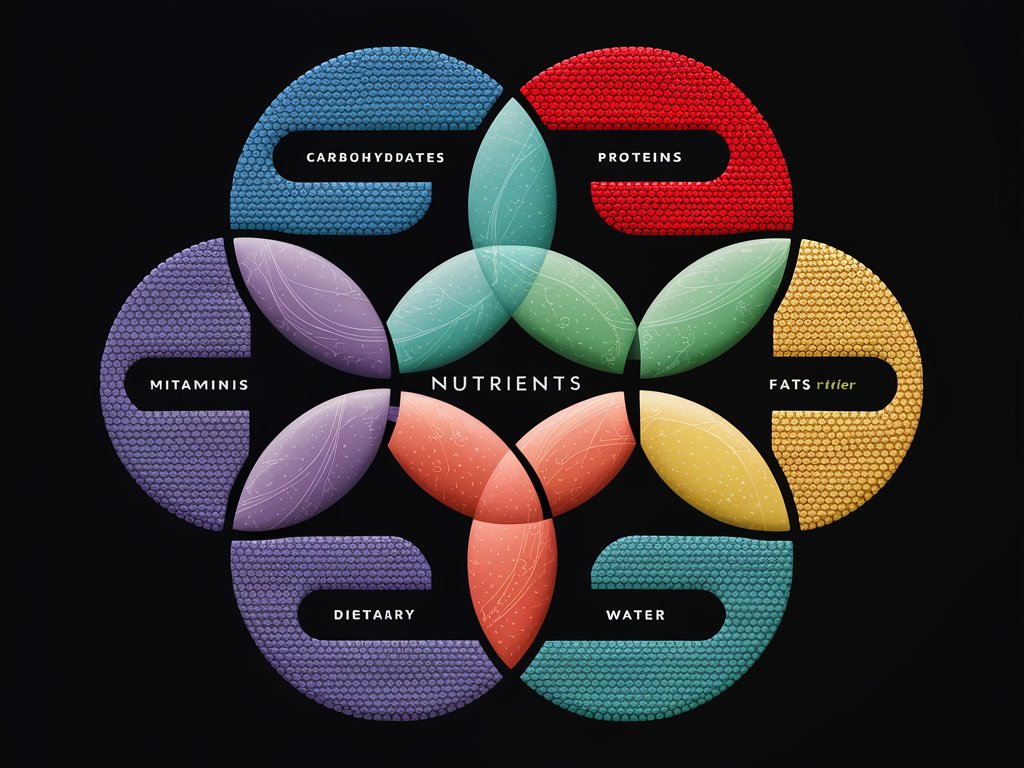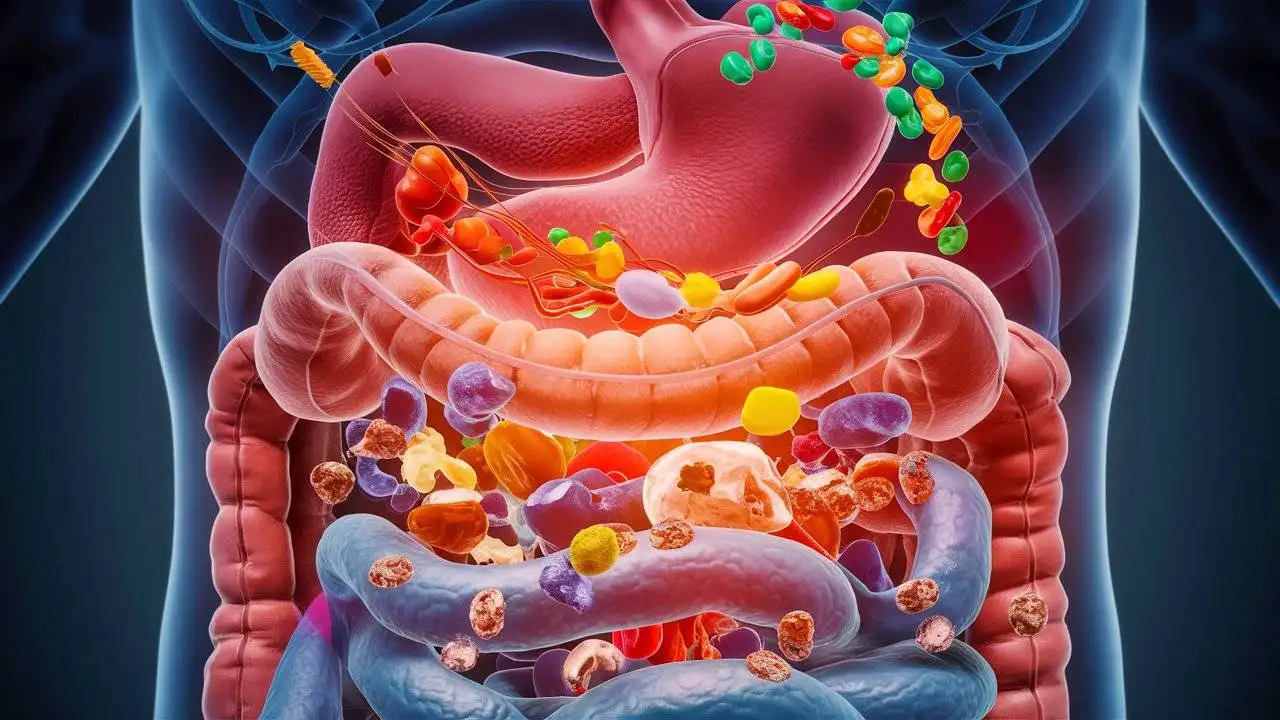Hey there! Have you ever wondered how the food you eat turns into the energy that keeps you going every day?
I know I have! It’s fascinating how our bodies transform a simple meal into the building blocks we need to live, grow, and thrive.
In this blog post, we’ll dive deep into the journey your food takes from the plate to your cells.
We’ll explore the different types of nutrients and how they each play a unique role in keeping you healthy.
Plus, I’ll share some personal stories and case studies to illustrate just how amazing our bodies are at using food as fuel.
What is Nourishment?
Nourishment is a term we often hear, but what does it actually mean?
At its core, nourishment is about providing our bodies with the essential nutrients they need to function correctly.
These nutrients come from the food and beverages we consume daily.
They are the building blocks of life, supporting everything from our brain function to our muscle movement and even our ability to fight off illnesses.
When we talk about nourishment, we’re referring to the combination of macronutrients (carbohydrates, proteins, and fats) and micronutrients (vitamins and minerals) that our bodies need in varying amounts.
Each type of nutrient has a unique role to play in maintaining our health.
For example, carbohydrates provide a quick source of energy, while proteins are crucial for building and repairing tissues.
Fats, though often misunderstood, are vital for storing energy and protecting our organs.
Understanding nourishment is not just about knowing what nutrients our bodies need, but also how they work together to keep us healthy.
It’s about making informed choices about what we eat to ensure our bodies get the right balance of nutrients.
This balance is what keeps us feeling energized, helps us recover from illnesses, and supports overall well-being.
In essence, nourishment is the foundation of a healthy life. Without proper nourishment, our bodies can’t perform at their best.
That’s why it’s so important to pay attention to what we eat and understand how different foods contribute to our health.

How the Body Forms Nourishment
The process of how our bodies form nourishment from the food we eat is nothing short of miraculous.
It all starts in the mouth, where chewing breaks down food into smaller pieces. Spit blends in with the food to start the assimilation cycle.
This mixture then travels down the esophagus to the stomach, where stomach acids and enzymes further break it down.
In the stomach, proteins start to unravel and carbohydrates begin to break down into simpler sugars.
The somewhat processed food, presently called chyme, moves into the small digestive tract.
Here, the pancreas and liver release enzymes and bile to help digest fats, proteins, and carbohydrates.
The walls of the small intestine absorb these nutrients into the bloodstream.
Once in the bloodstream, nutrients travel to various cells in the body.
Carbohydrates turn into glucose for energy, proteins become amino acids for building and repairing tissues, and fats provide long-term energy storage and cell protection.
Vitamins and minerals support countless bodily functions, from immune response to bone health.
The leftover waste moves into the internal organ, where water and electrolytes are consumed.
The waste is then excreted from the body. This whole process ensures that our bodies get the essential nutrients needed for energy, growth, and overall health.

Types and Categories of Nutrients
Now, let’s talk about the different types and categories of nutrients that our bodies need to stay healthy and strong.
Nutrients can be broadly classified into carbohydrates, proteins, fats, vitamins, minerals, dietary fibre, and water.
Each of these plays a unique role in keeping our bodies functioning optimally. Let’s take a closer look at each one:
Carbohydrates
Carbohydrates are the body’s primary source of energy. When we eat foods rich in carbohydrates, such as bread, pasta, and fruits, our digestive system breaks them down into simple sugars like glucose.
This glucose is then absorbed into the bloodstream and transported to cells, where it is used for immediate energy or stored in the liver and muscles for later use.
There are two types of carbohydrates: simple and complex. Simple carbohydrates are found in foods like sugar and honey, while complex carbohydrates are found in whole grains, vegetables, and legumes.
Both types are important, but complex carbohydrates provide more sustained energy and come with additional nutrients like fiber.
Proteins
Proteins are fundamental for the development, fix, and upkeep of body tissues. They are made up of amino acids, which are the building blocks of our cells, muscles, and organs.
When we eat protein-rich foods like meat, eggs, beans, and nuts, our digestive system breaks them down into individual amino acids.
These amino acids are then reassembled into new proteins that the body needs for various functions, such as muscle building, hormone production, and immune response.
Proteins also play a crucial role in producing enzymes and neurotransmitters, which are vital for metabolic and brain functions.
Fats
Fats are often misunderstood but are essential for good health.
They give a concentrated wellspring of energy and help in the retention of fat-solvent nutrients (A, D, E, and K).
Fats are also crucial for building cell membranes and producing hormones. There are three basic types of fats:
There are three basic types of fats:
- Saturated Fats: Found in animal products like meat and dairy, as well as some plant oils. They are solid at room temperature and should be consumed in moderation.
- Unsaturated Fats: These are found in foods like avocados, nuts, and olive oil. They are liquid at room temperature and are considered heart-healthy fats.
- Trans Fats: These are artificial fats found in some processed foods. They can expand the gamble of coronary illness and ought to be kept away from however much as could reasonably be expected.
Vitamins
Vitamins are natural compounds that our bodies require in little sums to operate accurately.
They play a role in a wide range of bodily processes, from boosting the immune system to ensuring proper cell function.
There are 13 fundamental nutrients, including nutrients A, C, D, E, K, and the B nutrients.
Each vitamin has a unique role, such as vitamin C’s role in collagen production and immune support, and vitamin D’s role in calcium absorption and bone health.
Minerals
Minerals are inorganic elements that our bodies need to perform various functions. Key minerals include calcium, potassium, sodium, and magnesium.
Calcium is crucial for bone health, potassium helps regulate fluid balance and nerve signals, sodium is important for muscle function and fluid balance, and magnesium is involved in over 300 biochemical reactions in the body.
Minerals are found in a variety of foods, including dairy products, fruits, vegetables, and meats.
Dietary Fibre
Dietary fibre is a type of carbohydrate that the body cannot digest. It is found in plant-based nourishments like natural products, vegetables, entirety grains, and vegetables.
Fibre plays a vital role in maintaining a healthy digestive system by adding bulk to the stool and aiding in regular bowel movements.
It also helps control blood sugar levels, lowers cholesterol, and can aid in weight management by promoting a feeling of fullness.
Water
Water is perhaps the most crucial nutrient of all. It makes up about 60% of our body weight and is involved in nearly every bodily function.
Water helps regulate body temperature, transport nutrients, remove waste, and cushion joints.
We lose water through activities like sweating, breathing, and digestion, so it’s important to stay hydrated by drinking plenty of fluids and eating water-rich foods like fruits and vegetables.
Personal Stories or Case Studies
Let me share a personal story that highlights the importance of balanced nutrition.
A friend of mine, Sarah, struggled with constant fatigue and frequent colds.
She often grabbed fast food due to her busy schedule, neglecting fruits and vegetables.
After visiting a nutritionist, she learned about the importance of a balanced diet rich in diverse nutrients.
She started incorporating more whole foods into her meals, including lean proteins, whole grains, and plenty of fruits and vegetables.
Within a few weeks, Sarah noticed a significant improvement in her energy levels and overall health.
Another story involves my uncle, who had high cholesterol.
His doctor recommended reducing saturated fats and incorporating more unsaturated fats into his diet.
He began using olive oil instead of butter, eating more fish and nuts, and increasing his intake of fruits and vegetables.
Over time, his cholesterol levels improved, and he felt better than ever.
These stories underscore how crucial it is to understand the nutrients our bodies need and to make conscious choices about our diets.
Proper nutrition can transform our health and quality of life.

FAQ About Gets Nutrients From Foods
Why are carbohydrates important?
Carbohydrates are the body's main source of energy. They are broken down into glucose, which fuels our cells and supports bodily functions.
What is the difference between saturated and unsaturated fats?
Saturated fats are solid at room temperature and found in animal products, while unsaturated fats are liquid at room temperature and found in plant oils and fatty fish. Unsaturated fats are considered healthier.
How does protein help our bodies?
Protein is essential for building and repairing tissues, producing enzymes and hormones, and supporting immune function.
Why do we need vitamins and minerals?
Vitamins and minerals support a wide range of bodily functions, including immune response, bone health, energy production, and fluid balance.
What role does dietary fibre play in our health?
Dietary fibre aids in digestion, helps control blood sugar levels, lowers cholesterol, and promotes a feeling of fullness.
Key Takeaways
- Nourishment is essential for growth, energy, and overall health.
- The body processes carbohydrates, proteins, fats, vitamins, minerals, dietary fibre, and water differently.
- Each nutrient has a specific function, from providing energy to supporting vital bodily functions.
- Personal stories can help us understand the importance of proper nutrition.
Understanding how your body gets nutrients from foods is crucial for making informed dietary choices.
Every nutrient plays a unique role in maintaining your health, from providing energy to supporting bodily functions and protecting against illnesses.
By focusing on a balanced diet rich in a variety of foods, you can ensure your body receives the nourishment it needs to thrive.
Remember, nutrition isn’t just about what you eat; it’s about how you feel and how well your body performs.
So, make mindful choices, listen to your body, and enjoy the journey to better health.
Thank you for reading! I hope this guide helps you understand the amazing process of how your body gets nutrients from foods and inspires you to make healthier choices every day.
On the off chance that you have any questions or need further information, feel free to reach out. Stay healthy and nourished!




